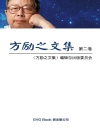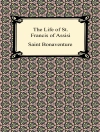This is a thriller and an essay about Europe and the world in the twenty-first century, with a European woman called Maria as the central character dealing with many renowned personalities.
Several inside stories of recent European history are revealed, from the invention of a European strategy for a new kind of growth to the troubled negotiation of the current EU treaties, the establishment of new relationships with the emerging powers of China or Brazil, the reform of global governance in the face of climate change and the financial crisis, and finally, the painful Eurozone crisis, leading to a major transformation of the European Union as a unique economic and political entity.
The final outcome is an exciting and amusing patchwork of stories, where behind-the-scenes politics are interwoven with the collective invention of new political ideas and some touching personal events, taking place all over the world, from Brussels, Berlin, Paris, London, Rome, and Warsaw to Washington, Brasilia, Johannesburg, and Beijing.
This essay was written as an e-book, easily digested in short paragraphs on Kindles, tablets, and laptops, wherever you are.
After this reading, the current Europe and European Union will become something easier to love or to hate and hopefully something easier to understand and to change.
Om författaren
The author, Maria João Rodrigues, a European woman born in Lisbon and living across Europe for fifteen years, has been involved in different fronts of European politics, with several hats as minister, member of EU presidencies leading bodies, special adviser in the EU institutions, counsellor to other governments and international organisations, as well as being a renowned expert, conference maker, and professor of European economic policies. Among many of her publications are:
Europe, Globalization and the Lisbon Agenda, Edward Elgar: Cheltenham, UK and Northampton, MA, USA, 2009
European Policies for a Knowledge Economy, 2003
The New Knowledge Economy in Europe: A Strategy for International Competitiveness and Social Cohesion, 2002.












